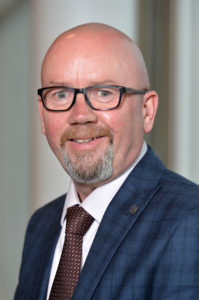Opinion moulder wins 2001 Baltic Sea Water Award
Mr. Leonid Korovin from St. Petersburg, Russia, is being awarded the Swedish Baltic Sea Water Award 2001. Korovin, who is being given the award for his commitment to improving the water environment of the Baltic Sea, will be honored by Swedish Trade Minister Leif Pagrotsky during the closing session of the 11th Stockholm Water Symposium on August 16 in the Stockholm City Conference Centre/Folkets Hus.
The Swedish Baltic Sea Water Award marks efforts that have contributed in a concrete manner to improving the quality of the water in and around the Baltic Sea. This is the third time for the prize to be awarded. Mr. Pagrotsky and Mr. Korovin will discuss the Swedish Baltic Sea Water Award and Sweden's Engagement in the Baltic Sea Environment during a press conference following the ceremony on August 16 at 11:30 in Folkets Hus Room 206.
In its motivation, the nomination committee wrote:
Leonid Korovin has made a commendable contribution to the development of a series of activities aiming to safeguard the water environment in the part of the Baltic Sea nearest to the St Petersburg area, which emits very large amounts of pollutants into the Baltic Sea. There were many different kinds of activities, such as research, inquiries and efforts to create institutional development in St Petersburg, as well as campaigns and information directed at the public and at decision makers.
Leonid Korovin has been active in putting forward recommendations to reduce water pollution in Russia. Since 1988 he has been active in the work of the Baltic Marine Environment Protection Commission (HELCOM) to protect the Baltic Sea. He was involved in the setting up of a regional HELCOM office in St Petersburg. Another example of Korovin's efforts is his initiative to hold an international 'Baltic Sea Day' in St Petersburg on the UN World Day for Water. Leonid Korovin has conducted research into biological wastewater treatment in the forestry industry. He is a strong spokesman for the principle of using the best available technology to improve the water environment, even where the resources are limited.
Leonid Korovin's commitment to safeguarding the Baltic Sea has led to extensive dissemination of information, for example, through many articles on the subject published in a number of different journals. In his efforts to address water problems he has worked according to the principle 'Think globally and regionally, but act locally'.
The Swedish Baltic Sea Water Award was established in 1999 by the Ministry for Foreign Affairs and is administered by the Stockholm International Water Institute, SIWI.
About SIWI
The Stockholm International Water Institute (SIWI), a scientific, technical, and educational organization, contributes to international efforts to combat the escalating global water crisis by facilitating research, raising awareness, and stimulating action on world water issues. SIWI administers the Stockholm Water Prize, Stockholm Junior Water Prize, Stockholm Water Symposium, Stockholm Water Initiative, Stockholm Industry Water Award and Swedish Baltic Sea Water Award.







